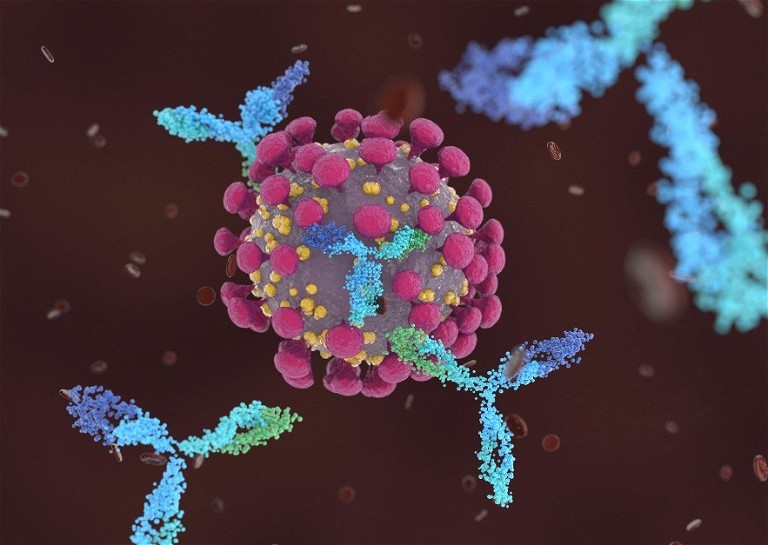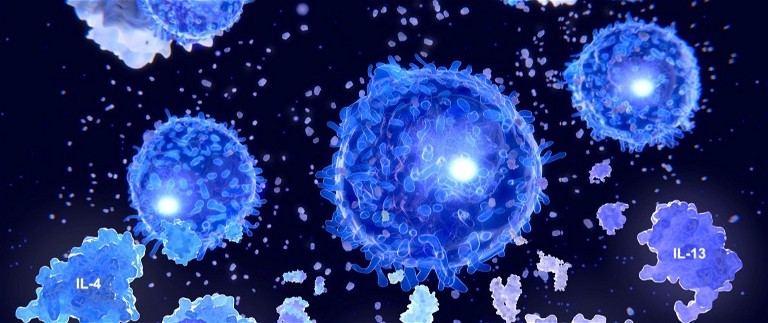ONCOLOGY
The AI frontier: transforming immunotherapy with intelligent drug discovery
Vicky Qu at BioMap considers the use of artificial intelligence in immuno-oncology and how its use can improve conventional drug discovery processes
In a world where more than one billion individuals suffer from immune-related disorders, it is evident that our immune system plays a pivotal role in our overall health. Approximately 90% of human diseases are closely associated with the immune system.
Immunotherapy is a therapeutic approach that harnesses the body’s own immune system to treat diseases. It functions by enhancing or modulating the immune response to identify and eliminate abnormal cells or tissues, thereby eradicating diseases or alleviating symptoms, including cancer and autoimmune conditions.
Compared to traditional chemotherapy and radiation therapy, immunotherapy has made significant advancements in the field of cancer treatment. It offers more precise targeting of cancer cells and has demonstrated remarkable therapeutic efficacy across various types of cancers. Furthermore, it holds great potential in managing autoimmune diseases by regulating the immune system’s response, minimising its impact on healthy tissues, thus ameliorating symptoms while slowing down disease progression.

However, despite significant progress in the past century with utilising vaccines and diverse immunomodulatory drugs for disease prevention and treatment, the immune system remains an intricate network comprised of cells, tissues and organs. Our limited understanding of this complexity has hindered the development of precise targeting and regulation in current immunomodulatory drugs.
Meanwhile, global drug development encounters numerous challenges such as prolonged research cycles, the need for substantial financial investments and high failure rates. These obstacles are compounded by the difficulties involved in identifying effective targets and designing and optimising innovative drugs. To address these challenges, scientists are exploring novel and efficient approaches, including computer simulation, high-throughput screening and precision medicine, to expedite the drug development process and enhance success rates.
So, how can artificial intelligence (AI)-driven drug development fundamentally transform or even disrupt the conventional paradigm of drug discovery?
The human body is a complex network at multiple scales, exemplified by the intricate nature of the immune system. Understanding the mechanisms of immune diseases, identifying immune targets and designing immunotherapeutic drugs pose significant challenges. But the shared characteristics of immune mechanisms in diverse diseases such as tumours and autoimmune disorders, as well as the logical correlations between various immune cells, have sparked great expectations for integrating large-scale immune maps and modelling complex immune systems within the industry.

Today, scientists are leveraging the capabilities of AI and its deep integration with disciplines such as immunology, life sciences, genomics and proteomics to decipher the code governing immunity while developing innovative immunomodulatory drugs for treating complex diseases. By decoding proteinprotein interaction networks through graph technology-based algorithms that eliminate errors, duplicates and ambiguities, this research aims to gain profound insights into the defence mechanisms employed by the human body. Graph algorithms are specifically built to analyse relationships and they are uniquely capable of finding structures and revealing patterns in connected data. They represent a novel paradigm for investigating complex problems in the era of data science and AI. Graph technology can leverage AI algorithms to consolidate knowledge that was previously dispersed across different research projects, experiments and experts, thereby establishing a unified knowledge system. By effectively transforming the arduous task of ‘finding a needle in a haystack’ into a collaborative endeavour akin to ‘finding treasure by following a map’, this technology significantly enhances decision-making efficiency in domains such as academic research and finance.
In recent years, the trend of graph technology has made its way into the realm of life sciences, where it is an ideal application due to the complexity and heterogeneity in biological problems. With the aid of graph technology, there have been major advances in the characterisation of the interplay and regulatory networks associated with immunity, which will play an instrumental role in facilitating the discovery of novel targets and drug design for immune-related diseases.
Drawing upon the complex operational mechanism of the immune system, we can construct an array of AI models capable of characterising different biological substances and diverse interaction relationships spanning multiple levels, including cells, proteins, genes and even the immune system itself. With AI tools, especially those based on AI foundation models – models that are trained on broad sets of unlabelled data and can be used for different tasks – we can harness existing biological data more effectively to simulate complex human body systems at multiple scales. These tools enable detailed analysis of protein-protein interaction networks, aiding scientists in their pursuit of decoding immunity – a pivotal milestone for more effective cancer immunotherapy.
Based on the predictive capabilities of AI large models, researchers can efficiently screen and explore new targets, discover novel proteins and cell morphologies and pave the way for innovative directions in drug design. The efficient de novo design capability of bio-computing, supported by supercomputing power, enables rapid evaluation of various functional and developability indicators for numerous candidate proteins. This facilitates swift verification and iterative convergence through a high-throughput experimental system, enabling de novo drug design.

AI has significantly expedited the drug development process across multiple stages including target discovery, molecular design and optimisation. Data indicates that AI can reduce the time required for preclinical candidate compound selection from an average of four and a half years to approximately 13.7 months – aremarkable reduction of nearly 75%. With its emerging zero-shot capabilities, AI also enables the design of entirely new proteins beyond those that exist in nature, opening up a new realm of functional molecules previously deemed impossible.
As well as de novo protein design, AI can also analyse existing drugs and compounds to identify potential candidates for repurposing in immuno-oncology. This approach can significantly reduce the time and cost of developing new treatments by leveraging existing pharmaceutical knowledge.
Beyond accelerating the discovery and design processes for new drugs, AI is anticipated to drive the development of personalised treatments. By analysing extensive patient data encompassing genomics, proteomics and clinical information, AI can accurately predict patients’ immune responses and treatment outcomes, aiding doctors in developing tailored treatment plans while enhancing success rates. AI can help identify specific biomarkers or antigens associated with cancer cells that the immune system can target, which is crucial for developing targeted immunotherapies and personalised treatment plans for cancer patients.
Additionally, AI-powered automated laboratories are poised to emerge as a prominent future industry trend. By employing active learning or reinforcement learning techniques, AI models can effectively plan and execute fully automated laboratory operations. This allows scientists within these labs to focus on higher-level tasks that are more intellectually stimulating and creative.
In summary, the deep integration of state-of-the-art biotechnology and AI technology has the potential to revolutionise immuno-oncology by expediting drug discovery, improving patient outcomes through personalised treatment plans, and enhancing our overall understanding of cancer immunotherapy. As AI technology continues to improve, so does its promise for advancing more effective and efficient approaches to combatting cancer and improving the lives of patients.

Vicky Qu serves as the vice president for Corporate and Business Development at BioMap, where she oversees the company’s strategy, investment, platform partnerships and key collaborations. Additionally, she holds the position of chief of staff, spearheading project management efforts across the organisation. Prior to joining BioMap as a founding team member, Vicky has built a wealth of experience in healthcare investment. Her previous role as vice president of Investments at Baidu Ventures and her involvement in sophisticated deal-making at GL Capital have given her valuable insights into industry dynamics, honing her critical thinking skills in frontier fields.
Vicky is a CFA Charter-holder and received her MSc in Finance and BSc in Life Science from Tsinghua University, China.